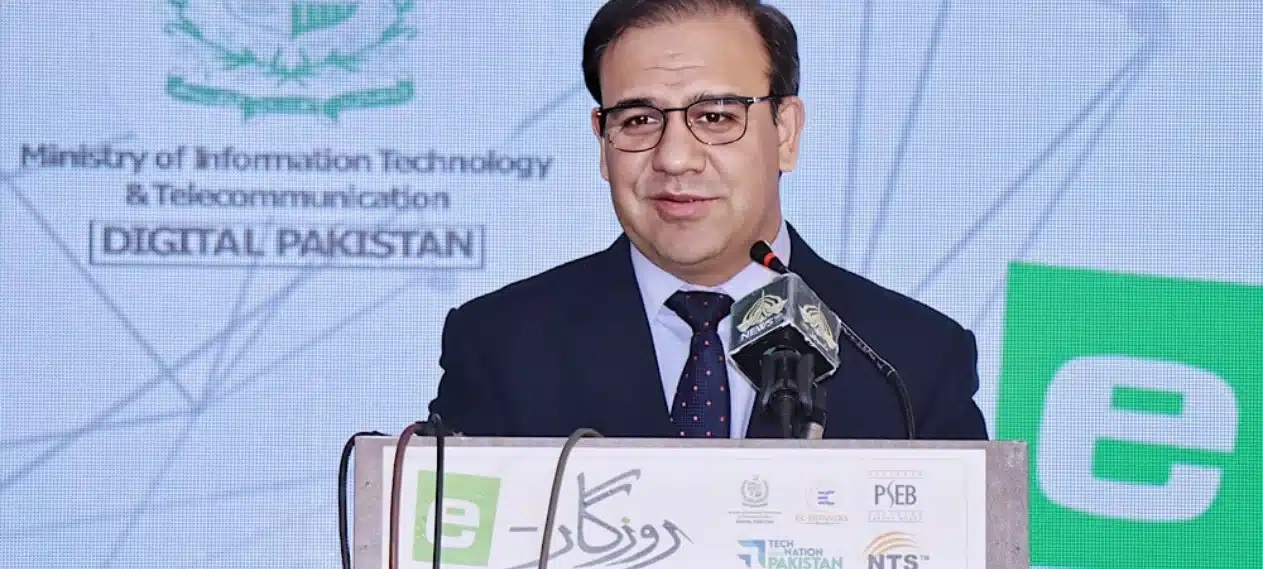X, formerly known as Twitter, has been inaccessible in Pakistan for nearly 48 hours due to concerns surrounding irregularities in the February 8 general elections. The revelation by Commissioner Rawalpindi of election manipulation in his division preceded the sudden blockage of X, leaving users to rely on Virtual Private Networks (VPN) to access the platform. Surprisingly, the Pakistan Telecommunication Authority (PTA) has remained silent on the matter.
Meanwhile, Minister for IT, Umar Saif, known for highlighting his ministry’s achievements, has chosen to ignore inquiries from netizens regarding the shutdown. Shortly after X’s blockage on February 17, Saif shared a report from GitHub on his account. However, instead of appreciation, he faced criticism from users for utilizing a VPN to access the platform.
Pakistan’s IT industry is taking off … pic.twitter.com/jaEBZa3huM
— Umar Saif (@umarsaif) February 17, 2024
Here’s what netizens had to say:
Bhae vpn off kr k kro tweet. https://t.co/lP3WfOnNSj
— Umer (@GoStudyUmer) February 19, 2024
Shameless behavior. Posting through VPN and talking about IT https://t.co/wwJADh6Myi
— Zia (@mardgeer123) February 19, 2024
IT Minister tweeting through VPN that Pakistan’s IT industry is taking off https://t.co/VAUSAdUBNk
— Taimur Ali Khan Mohmand (@TAKM__) February 18, 2024
genius is tweeting this with VPN https://t.co/2KVPfXtdQh
— Umar Aftab Butt (@documaraftab) February 18, 2024
The incident also raised concerns about the government’s approach to online censorship and freedom of expression. Many criticized the authorities for their swift action in blocking X while failing to address the underlying issues of election manipulation and accountability.
Must Read: Twitter Down for More Than 36 Hours Amid Protests Against Election Rigging
Furthermore, Minister Umar Saif’s use of a VPN to access X drew attention to the limitations imposed on internet access and the lengths individuals must go to bypass such restrictions.
As the debate intensifies, the need for open dialogue, transparency, and a coherent approach to internet governance becomes increasingly apparent. The incident serves as a reminder of the delicate balance between security concerns and the fundamental rights of citizens in the digital age.
The lack of communication from the Pakistan Telecommunication Authority and the IT Minister’s reluctance to address the situation only serve to deepen the frustration and mistrust among the public. Citizens are increasingly vocal about their concerns regarding government overreach and the erosion of digital rights.
In the face of growing scrutiny and criticism, there is a pressing need for greater transparency, accountability, and respect for freedom of expression in Pakistan’s digital landscape. The government must engage in open dialogue with its citizens, address their concerns, and uphold their fundamental rights in the online sphere.
Ultimately, how the government responds to this incident will be a test of its commitment to democratic principles and the rule of law in the digital age.



